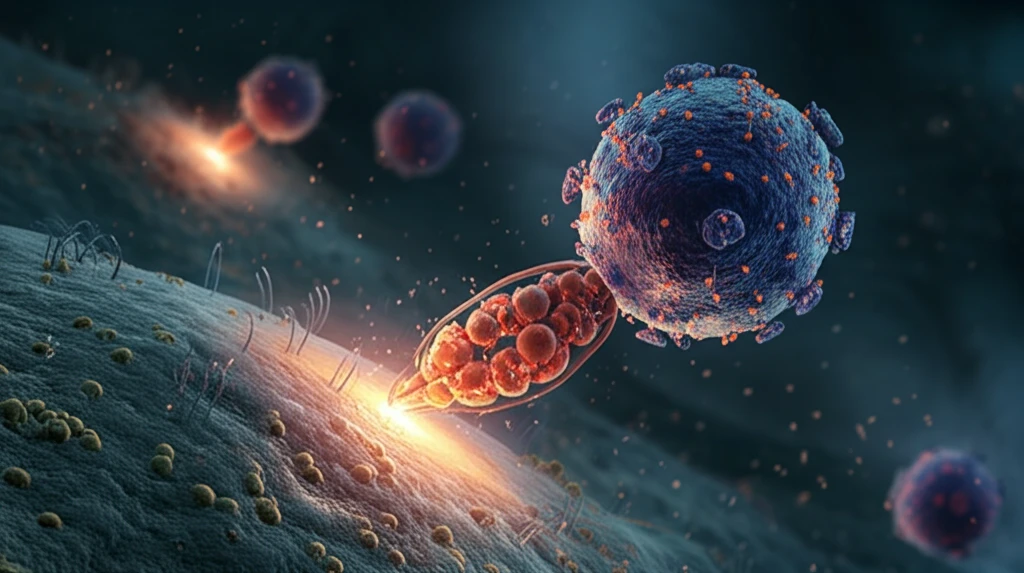
Can Viruses Fight Cancer? The Promising Future of Oncolytic Adenovirus Therapy
"Explore how genetically engineered adenoviruses are being developed as a potential breakthrough in prostate cancer treatment, offering new hope for patients resistant to traditional therapies."
Prostate cancer remains a significant health challenge, ranking as a leading cause of cancer-related deaths among men in the Western world. While initial treatments like androgen-deprivation therapy (ADT) can effectively slow the disease's progression, many tumors eventually develop resistance, leading to advanced, castration-resistant prostate cancer (CRPC). This resistance often renders conventional therapies, including chemotherapy, ineffective, highlighting the urgent need for innovative treatment strategies.
Enter oncolytic adenovirus therapy, a cutting-edge approach that harnesses the power of viruses to selectively target and destroy cancer cells. These genetically engineered adenoviruses are designed to replicate within cancer cells, causing them to lyse (break apart) and die, while leaving healthy tissues unharmed. This targeted action offers a potential solution to overcome drug resistance and improve outcomes for patients with advanced prostate cancer.
This article delves into the exciting world of oncolytic adenovirus therapy, exploring its mechanisms of action, clinical trial results, and future directions. We'll examine how these modified viruses are being developed to enhance tumor elimination, stimulate the immune system, and ultimately offer new hope for men battling prostate cancer.
How Do Oncolytic Adenoviruses Work?

Oncolytic adenoviruses are engineered to exploit the unique characteristics of cancer cells. Here’s a breakdown of their key mechanisms:
- Selective Replication: The viruses are modified to replicate efficiently only within cancer cells, often by targeting pathways that are deregulated in tumors.
- Cell Lysis: As the virus replicates inside the cancer cell, it eventually causes the cell to burst open (lyse), releasing more viruses to infect neighboring cancer cells.
- Immune Stimulation: Some oncolytic adenoviruses are designed to express immune-stimulatory factors that activate the body's own immune system to recognize and attack the remaining cancer cells.
- Transgene Delivery: These viruses can also be engineered to carry therapeutic genes (transgenes) that further enhance their anti-cancer effects, such as those that promote apoptosis (programmed cell death) or convert prodrugs into active cytotoxic agents.
The Future of Oncolytic Adenovirus Therapy
Oncolytic adenovirus therapy represents a paradigm shift in cancer treatment, offering a targeted and multifaceted approach to overcome drug resistance and stimulate the immune system. As research progresses and clinical trials continue, these innovative therapies hold the potential to significantly improve outcomes for patients with prostate cancer and other malignancies. With ongoing advancements in virus engineering and delivery strategies, the future of oncolytic adenovirus therapy looks promising, offering new hope in the fight against cancer.
